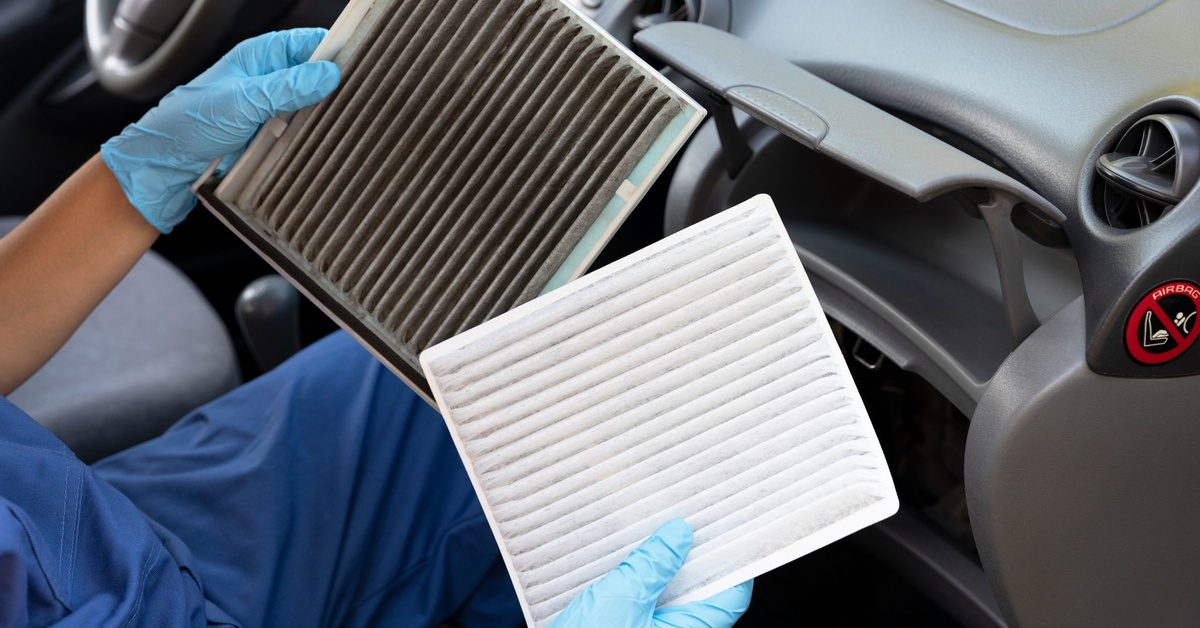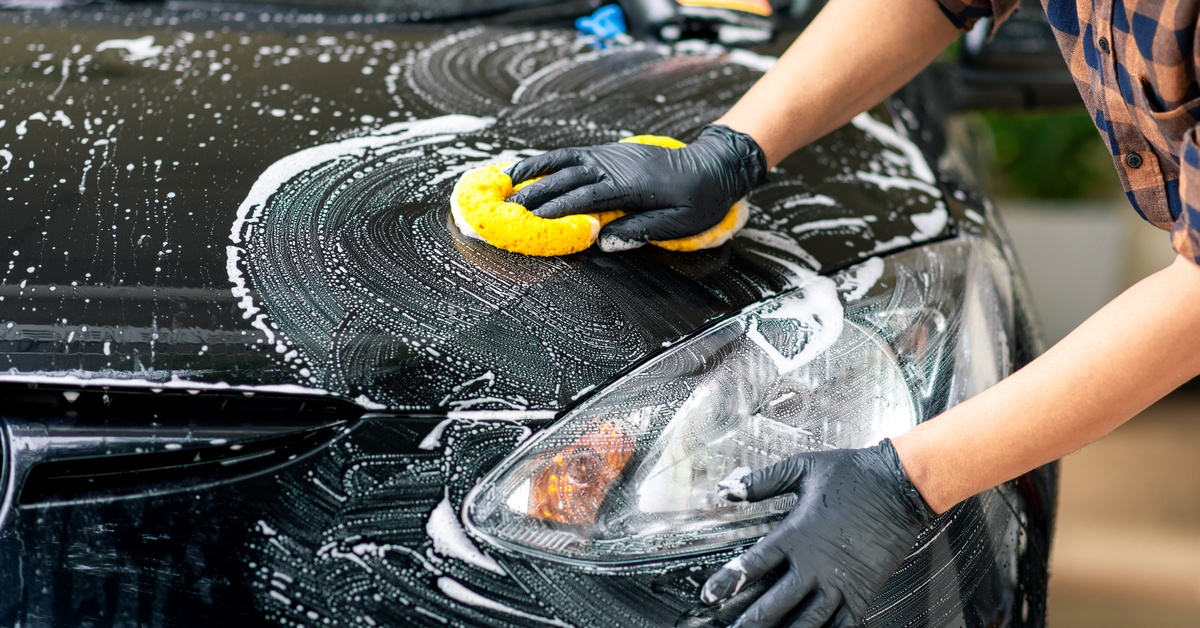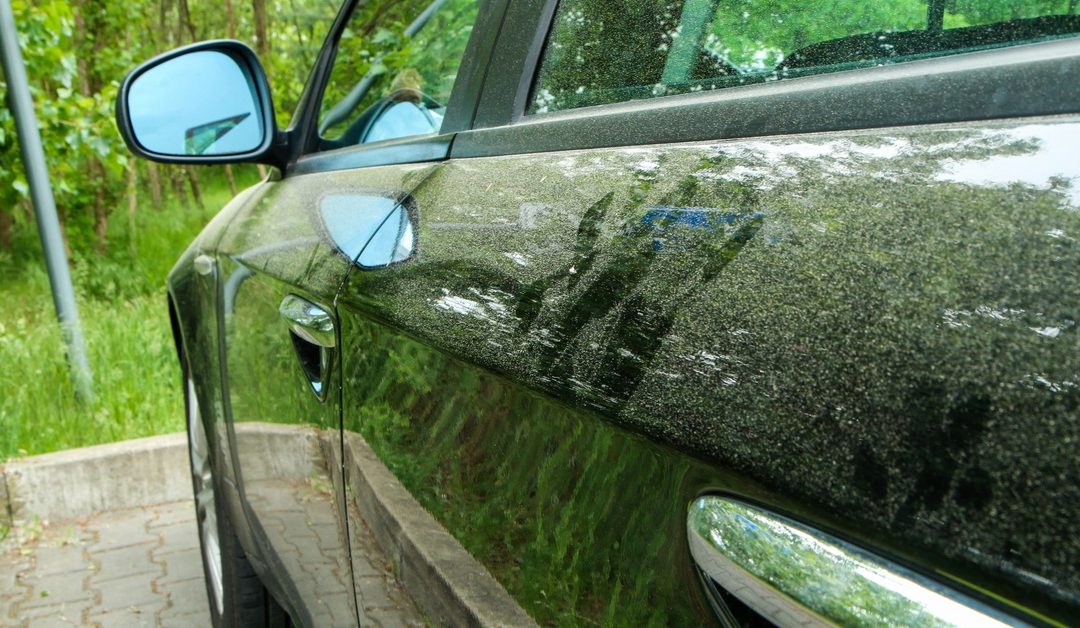Pollen might seem harmless when it dusts your car each spring, but don’t be fooled by its pleasant yellow hue. While those little granules are a sure sign warmer days have arrived, they’re more than just a cosmetic headache for vehicle owners. With this guide, you’ll learn why pollen is worse for your car than you think and get some tips for protecting your investment.
How Pollen Attacks Your Car
Pollen particles are tiny, but they are uniquely designed by nature to be sticky so they can travel far and wide. When these particles settle on your car, they cling to every surface, especially after rain when the combination forms a paste-like grime. This sticky mixture can bond to the paint, making it a pain to wash away.
Pollen isn’t just sticky—it’s acidic, too. When pollen interacts with moisture in the air or dew overnight, it becomes slightly acidic, which can erode your car’s clear coat and paint over time. Left unattended, pollen can even etch into the glass or create micro-scratches on your windshield every time you use your wipers.
More Than a Paint Problem
Although it’s easy to dismiss pollen as just a threat to your paint job, the effects stretch much further:
- Rust: Pollen eats into the protective coat over time, leading to dullness and, eventually, rust.
- Clogged air filters: If pollen enters your car’s HVAC system, it may clog your filters and reduce your air quality.
- Visibility hazards: When you try to use your windshield wipers to get rid of accumulated pollen, it can smear and cloud your view. Remember, any obstruction in the driver’s line of sight is dangerous on the road.
- Wiper damage: Due to pollen’s gritty particles, using dry wipers to clear pollen can cause scratches on both the wiper blades and the glass itself.
Neglecting pollen can trigger a chain reaction of damage that culminates in an unexpected visit to your mechanic or windshield repair specialist.

What Pollen Really Does to Your Windshield
Most drivers think windshield troubles come only from rocks, pebbles, or other flying debris. However, pollen causes its own set of issues that often go unnoticed until real damage occurs.
Micro-Scratches Add Up Fast
Every time you flick your windshield wipers to remove what appears to be a thin dusting of pollen, you risk grinding those abrasive particles into the glass. While a single swipe might not leave visible marks, repeated wiping creates tiny scratches and hazing.
Over time, your windshield may develop a foggy appearance, scatter light from oncoming cars, and reduce your overall visibility.
The Role of Acidity
Pollen’s acidity works slowly, but it can have a powerful effect on the glass. When pollen sits on your windshield for long periods, especially after rainfall, it can weaken the protective glass coating.
Vulnerable areas can become even weaker if you already have tiny chips or imperfections from past debris. Essentially, pollen opens the door to bigger problems.
Combination Damage
If your windshield has even a small chip or crack, that dangerous mix of moisture and pollen can seep into the affected area.
Pollen acts as a contaminant, making traditional chip repairs less effective. Over time, this contamination can cause cracks to expand, necessitating a full windshield replacement instead of a more affordable repair.
How To Protect Your Car From Pollen
The good news is you don’t have to resign yourself to endless washes or constant windshield repairs through allergy season. Follow along to learn some proactive steps you can take to keep pollen at bay and protect your car.

Wash Early, Wash Often
Don’t wait for a thick coating of pollen to accumulate on your car. During peak pollen seasons, wash your vehicle at least once a week using a gentle car shampoo and plenty of water. Just remember to always rinse before scrubbing to avoid grinding particles into the glass or paint.
Invest in a Quality Wax
Applying a protective coat of wax creates a barrier between your paint and environmental contaminants including pollen. This step makes it much easier to wash away pollen before it causes lasting damage. Plus, windshield-specific water repellents can do the same for your glass, making it more difficult for pollen and water to adhere to the surface.
Replace Air Filters Frequently
Pollen is a leading cause of clogged cabin air filters in spring and early summer. A fresh air filter keeps pollen and other allergens out of your car’s interior, protects your HVAC efficiency, and makes driving more comfortable.
Cover Up When Possible
If you have access to a garage or carport, use it. Otherwise, invest in a high-quality car cover during the height of pollen season. Keeping your car covered prevents most pollen from reaching the surface in the first place.
Use Proper Cleaning Techniques
Never use a dry rag or brush to clear pollen off your windshield. Instead, hose down your glass and paint before wiping, then use a soft, clean microfiber towel to dry. Avoid using paper towels as they can scratch the surface.
For stubborn pollen or sap, use an automotive glass cleaner designed for tough residue. Gentle, circular motions work best, and avoid pressing too hard.
Seek Windshield Repair
Even with the best preventive measures, pollen can still cause issues that require professional attention. If you notice any of the following issues, it’s probably time to call in the professionals:
- Cloudy or hazy spots: Persistent cloudiness, even after a thorough cleaning, indicates micro-scratches or etching.
- Spreading cracks: If a chip seems to be growing or pollen contamination prevents resin from bonding, seek repair immediately.
- Pitted glass: Severe pitting (tiny, deep marks all over the windshield) can cause light to refract and distract you on the road.
Ignoring minor damage may allow pollen and moisture to creep in, making a quick fix impossible and forcing a full windshield replacement later. Even if you’re away from home or far from an auto shop, Fusion Windshield Repair offers mobile windshield repair services to get your car back in action—no matter where you are.
Take Action Before Pollen Takes Over
Pollen is much worse for your car than you think, and ignoring that springtime layer could cost you a lot more than a trip to the car wash. However, if you find pollen damage has already made its mark, don’t worry! Connect with Fusion Windshield Repair today to restore your clear view and protect your car for miles to come.


Recent Comments